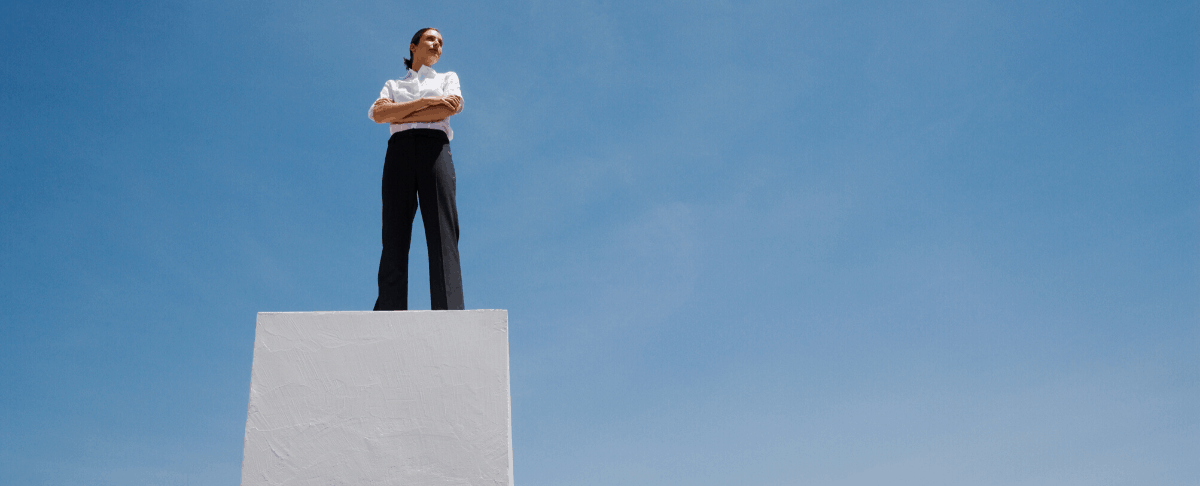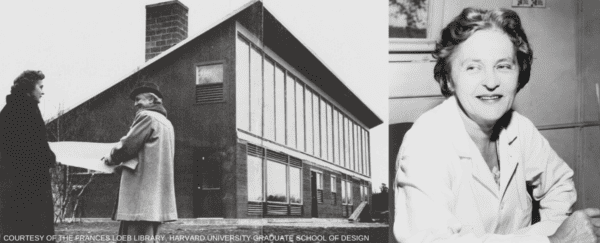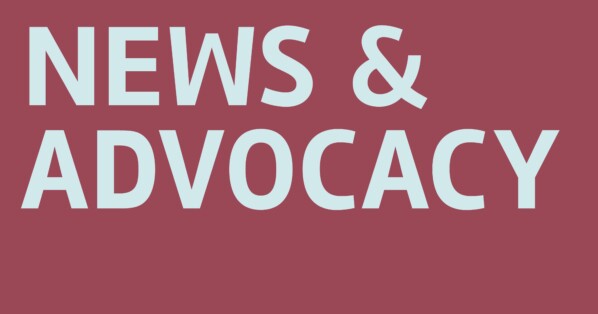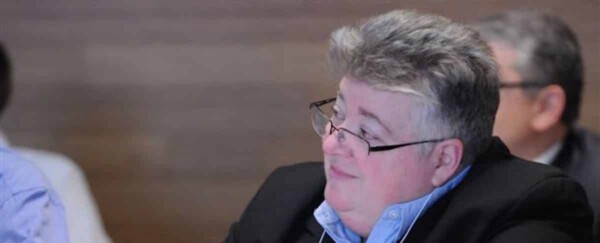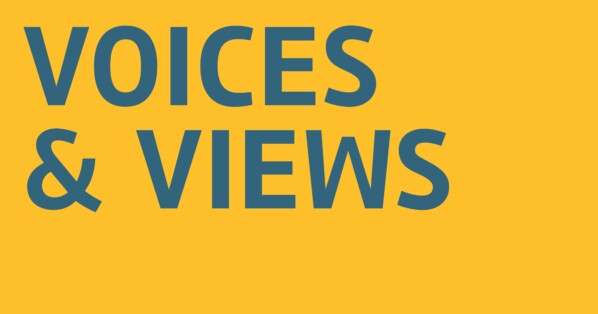In Recognition of Eminent Research
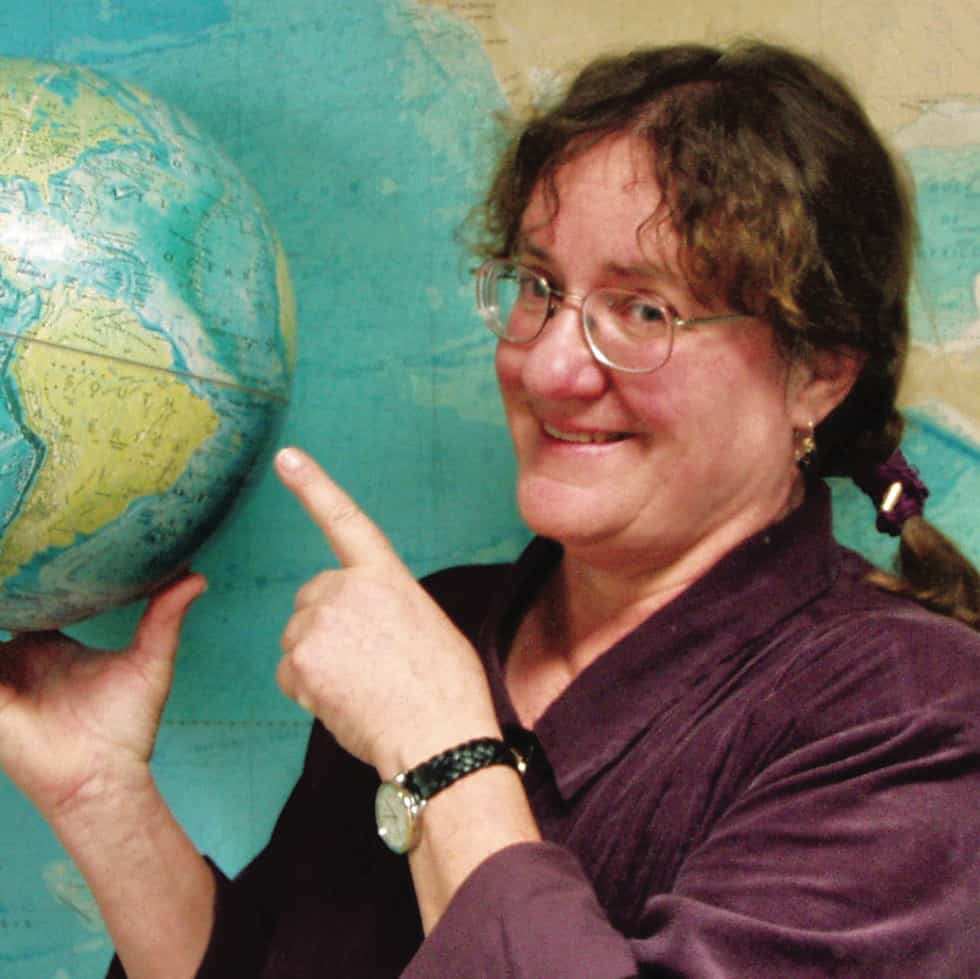
Tanya Atwater, Ph.D., Emeritus Professor of Tectonics, University of California, Santa Barbara, received the Penrose Medal for her work in the field of tectonics. The Penrose Medal was established in 1927 by R.A.F. Penrose Jr. to be awarded in recognition of eminent research in pure geology for outstanding original contributions or achievements that mark a major advance in the science of geology.
A geophysicist and marine geologist, Dr. Atwater is dubbed “The Mother of Plate Tectonics” for her extensive research in the field. She is best known for her work on the plate tectonic history of western North America, in particular the San Andreas fault system, a roughly 750-mile (1,200-km) zone that serves as the boundary between the Pacific and North American plates. The fault, which extends almost the entire length of California and Baja California, has been involved in major quakes, including the 1906 San Francisco earthquake (magnitude 7.8) and the 1989 Loma Prieta quake near Santa Cruz (magnitude 6.9), and is thought to be the eventual site of the next “big one” in southern California.
Not limited to dry land, Dr. Atwater’s work also reaches into the ocean, where she investigated processes such as sea floor spreading and underwater fault formation. According to the Geological Society of America, she “brought understanding to processes at midocean ridges, and more importantly, showed how the quantitative elegance and simplicity of plate tectonics could be brought to continents to understand their history with numbers, not with just qualitative analogies.” So significant was her work in this field, she earned a reputation as one of the foremost experts in ocean tectonics.
Dr. Atwater joined the UC Santa Barbara faculty in 1980 after stints at the Massachusetts Institute of Technology, the Woods Hole Oceanographic Institution, and the Scripps Institution of Oceanography. During the course of her career, she participated in or led numerous field expeditions both on land and at sea, including 12 dives to the deep ocean floor — depths as great as 2 miles (3.2 km) — in the tiny submersible “Alvin.” Dr. Atwater is also known as a trailblazer for women’s rights to conduct oceanographic field research, a practice that was generally not permitted when she began her studies.
Outstanding Achievements, Exceptional Volunteer Service
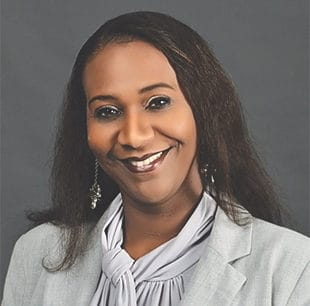
The American Chemical Society (ACS) named Sherine O. Obare, Ph.D., dean of the Joint School of Nanoscience and Nanoengineering, a 2019 fellow. The ACS fellows program honors 2% of its membership for outstanding achievements and contributions in the field in addition to exceptional volunteer service to the society.
Dr. Obare’s nomination recognized her significant contributions to the profession through her work developing novel synthetic routes for nanoparticles and promoting studies to understand their use and impact. Her nomination further cited her innovative service as technical program chair of the society’s Division of Environmental Chemistry by organizing premier symposia and successfully increasing public outreach through the Environmental Film Competition.
An ACS member for nearly two decades, Dr. Obare has played a significant role in mentoring and encouraging women pursuing careers in STEM, as well as increasing the number of students who pursue STEM careers. “It’s important for young women to consider the benefits of joining professional disciplinary organizations as it allows them to exchange ideas and collaborate with other expert colleagues to solve issues affecting our world, and also creates opportunities for mentorship,” said Dr. Obare. “I would not have made it to this point without the support and collaborative efforts of others in my field, and the ACS has done an admirable job creating an inclusive and diverse community of great minds.”
Exemplary Recognition

Valerie Taylor, Ph.D., was recognized as an Argonne Distinguished Fellow, exemplifying Argonne’s efforts to honor its world-class community of talent. Those earning this distinction represent only 3% of research staff at the facility, making the award the highest scientific and engineering rank at the laboratory. The new fellows have earned international recognition for their work and demonstrate the type of leadership that enables Argonne to accelerate science and technology for U.S. prosperity and security.
Dr. Taylor is the director of the Mathematics and Computer Science (MCS) division. She received her Ph.D. in electrical engineering and computer science from the University of California, Berkeley in 1991. She subsequently joined the faculty in the electrical engineering and computer science department at Northwestern University, where she was a member of the faculty for 11 years. While at Northwestern, she held a guest appointment with Argonne’s MCS division and collaborated on research in performance analysis and modeling of parallel applications and on experiments with interactive immersive visualization.
In 2003, Dr. Taylor joined Texas A&M University, where she served as head of the computer science and engineering department and senior associate dean of academic affairs in the College of Engineering, and as a regents professor and the Royce E. Wisenbaker Professor in the department of computer science. While at Texas A&M, she continued her collaborations with Argonne, exploring advanced reservations of distributed computational resources. In 2011 she spent a summer sabbatical at Argonne, collaborating with researchers from Argonne’s Leadership Computing Facility on the development of a framework for modeling workload behavior.
Dr. Taylor’s research focuses are in the areas of performance analysis and modeling of parallel scientific applications. One of her major accomplishments was the development of the Prophesy performance analysis infrastructure, which included a component for generating performance models as well as a database to archive performance data, execution system features, application details, and model data. Prophesy was leveraged to explore the trade-offs between execution time and power requirements of parallel scientific applications. Currently, she is focused on the areas of performance analysis, power analysis, and resiliency. Dr. Taylor is a fellow of IEEE and the Association for Computing Machinery.
Inaugural International Sustainability and Stewardship

The inaugural Sustainability and Stewardship in the Oil and Gas Industry Award was earned by Karen Olson, technology director, Southwestern Energy, at the Society of Petroleum Engineers’ (SPE) 2019 Annual Technical Conference and Exhibition. Olson was an SPE distinguished lecturer in 2018-2019 and traveled around the world to present “Fresh Water Neutral: Managing Water Use and Giving Back to the Environment.” Her leading role in Southwestern Energy’s ECH2O® (Energy Conserving Water) initiative to replenish or offset each gallon of fresh water used in hydraulic-fracturing operations through conservation practices, projects,
and technologies led to her receiving the award.
For Olson, leading the charge on freshwater neutrality was a logical extension of her extensive career-long work in design, modeling, and operational execution of hydraulic fracturing. It was also an opportunity to apply the approach she believes has been a key enabler of her accomplishments.
After joining Southwestern Energy in 2010, Olson and her team applied the technical fundamentals of data gathering and diagnostics, using large blocks of outcrop rock analogous to different horizons in the Fayetteville shale to advance understanding of fracture complexity. Their work led to understanding that fracture complexity is in the rock and can be enhanced with fluids and other techniques but not created with them.
Honoring Research
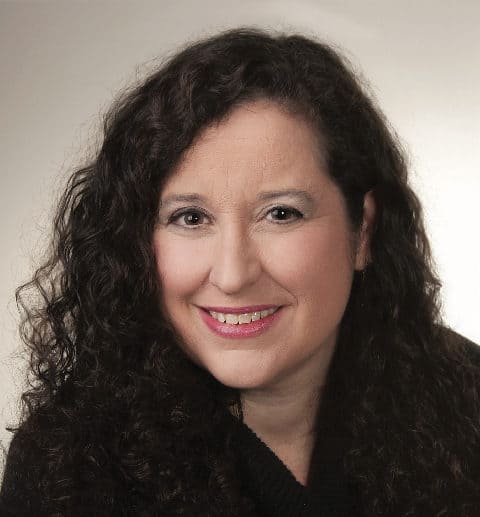
The Institution of Civil Engineers honored the research of Debra Laefer, Ph.D., associate professor of civil and urban engineering at New York University (NYU). Dr. Laefer also serves as a professor of urban informatics and is director of citizen science at NYU’s Center for Urban Science and Progress.
Her research paper on terrestrial laser scanning (TLS) to examine Ireland’s historic Guinness Bridge was published in the journal Engineering History and Heritage and garnered the 2019 Manby Prize from the institution. It was lauded for its exceptional quality and benefit to the civil engineering, construction, and materials science community. It provided both a case history of a significant structure and a framework for assessing other historic wrought iron bridges using data.
Dr. Laefer chose to examine the structure using TLS, a noncontact method by which researchers can quickly, cost effectively, and safely acquire three-dimensional topographic data on the visible surfaces of structural members with millimeter-level accuracy. The data can then be processed to generate a permanent record of a structure’s status or to report structural deficiencies.
Much bridge assessment is conducted by means of visual inspection, which is subjective and highly dependent on an inspector’s experience, particularly in poor weather conditions or when there is limited site access. Access was a particular problem for the Guinness Bridge, which lacks a riverbank on the south side, and its north side is largely blocked by a rampant growth of trees.
Although it represents an important part of Ireland’s industrial heritage, the Guinness Bridge, which came under state ownership in 1999, had been severely neglected and had been nominated to the World Monument Fund’s “Most at Risk” list in 2012. While the researchers concluded — to the dismay of many in the community — that reopening the bridge for pedestrian traffic was unlikely, they proved that TLS can surpass other common techniques, such as acquiring drone-based images, in certain situations.
Technical Excellence Awards
The American Institute of Aeronautics and Astronautics (AIAA) announced the recipients of its technical excellence awards. Two women, chosen by their peers from related AIAA technical committees, were recognized for their outstanding contributions in their field.
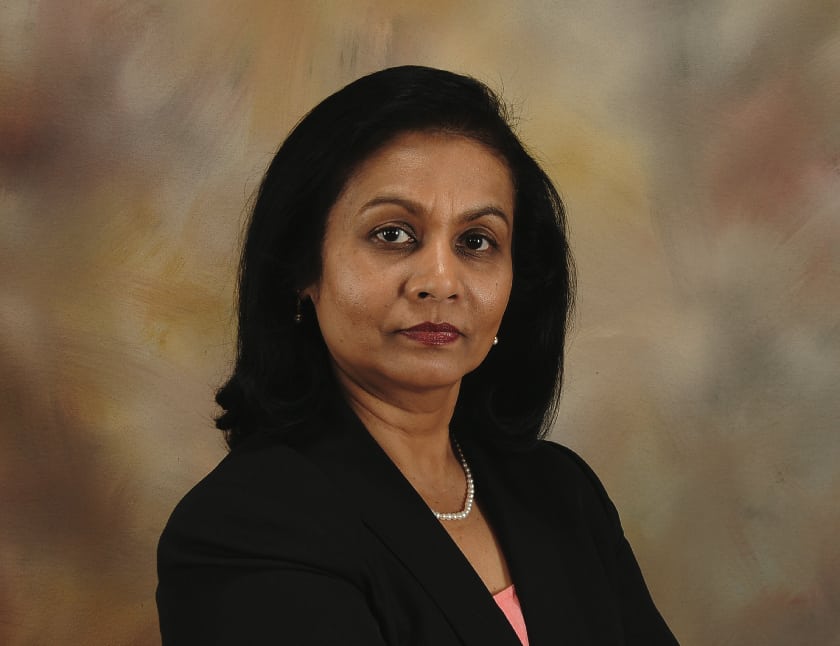
Judith A. Jeevarajan, Ph.D., senior scientist, NASA Johnson Space Center, received the 2019 AIAA Aerospace Power Systems Award “in recognition of significant contributions to the design, development, and test of safe and reliable battery energy storage power systems for aerospace applications.”
Dr. Jeevarajan has worked on-site at the NASA Johnson Space Center (NASA-JSC) since 1998. She is currently the group lead for battery safety and advanced technology at NASA-JSC. She has more than 15 years of battery experience with her main focus being li-ion cell and battery research. Dr. Jeevarajan represents the battery group at all the NASA safety panels, which involves working with the international partners. She serves in the technical working group for standards organizations such as Underwriters Laboratories and IEC/ANSI and is currently leading an effort for NASA under AIAA to write a space safety standard for battery systems.

Karen A. Thole, Ph.D., professor and department head, mechanical engineering, The Pennsylvania State University, earned the 2019 AIAA Air Breathing Propulsion Award for “significant technical contributions to the understanding of convective heat transfer in gas turbine engines, and continuing efforts to promote participation of underrepresented groups in aerospace.”
Dr. Thole has been department head at Penn State since 2006. Her expertise is in convective heat transfer and state-of-art turbine cooling methods such as film cooling, impingement cooling, and microchannel cooling. In 2011, she founded the Steady Thermal Aero Research Turbine (START) Laboratory focused on gas turbine heat transfer during continuous operation at realistic engine conditions. The START Lab is a center of excellence for a major gas turbine manufacturer. Dr. Thole has secured more than $25 million in external research funding ($8 million in just the past two years), published more than 200 peer-reviewed papers, and advised more than 60 dissertations and theses.
Outstanding Women in Engineering Education Award
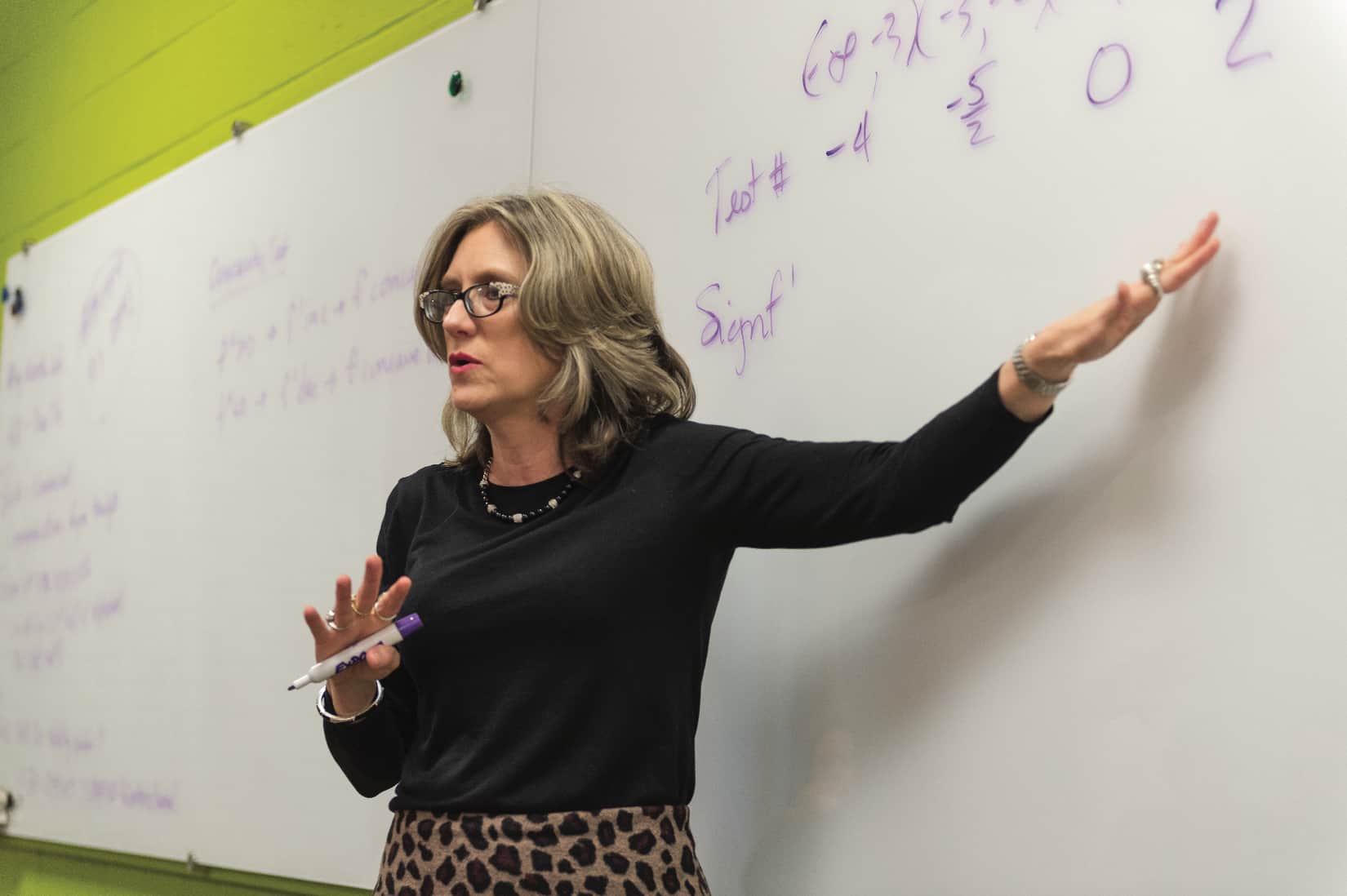
Campbell University School of Engineering Founding Dean Jenna Carpenter, Ph.D., received the 2019 Sharon Keillor Award for Women in Engineering Education at the American Society of Engineering (ASEE) conference. The award recognizes and honors outstanding female engineering educators and consists of an honorarium of $2,000 and a plaque presented at the conference. According to the ASEE, recipients have an outstanding record in teaching and a strong performance in research and service within their schools.
Dr. Carpenter, who has been the founding dean of Campbell Engineering since July 1, 2015, said she was honored to receive the award. “Teaching and mentoring engineering students and faculty has always been my passion,” she said. “I am so pleased that ASEE recognizes the efforts of women engineering educators. We definitely need more women role models in engineering to help girls realize the opportunity to make a difference in the world that a career in engineering provides.” Dr. Carpenter also received the ASEE Southeastern Section Campus Representative Award and the ASEE Zone II Campus Representative Award.
Previously, she was the Wayne and Juanita Spinks Endowed Professor, associate dean for undergraduate studies, and director of the Office of Women in Science and Engineering at Louisiana Tech University’s College of Engineering and Science. For 10 years, she was a director in the College of Engineering and Science, which involved serving as department chair for the college’s engineering programs and guiding them through successful re-accreditation. She later led the formulation and implementation of the college’s strategic plan during her five-year tenure as associate dean for administration and strategic initiatives.
AISES 2019 Professional of the Year Awards
The American Indian Science and Engineering Society (AISES) honored recipients of the Professional of the Year Award during the closing banquet at the organization’s annual conference in mid-October. The awards recognize innovation, dedication, and leadership among American Indian, Alaska Native, Native Hawai’ian, First Nations, Pacific Islanders, and other Indigenous groups in STEM disciplines. Three of this year’s five recipients are women.
Rick Stephens, AISES board chair, said, “We honor the best who are the current and future leaders of STEM professions and academia. Often these individuals are taking Western science and merging it with Indigenous knowledge.”
Sarah EchoHawk, AISES CEO, noted that, “This year’s awardees lead by example and honor their families, communities, and heritage, as well as setting a high bar in achievement.”
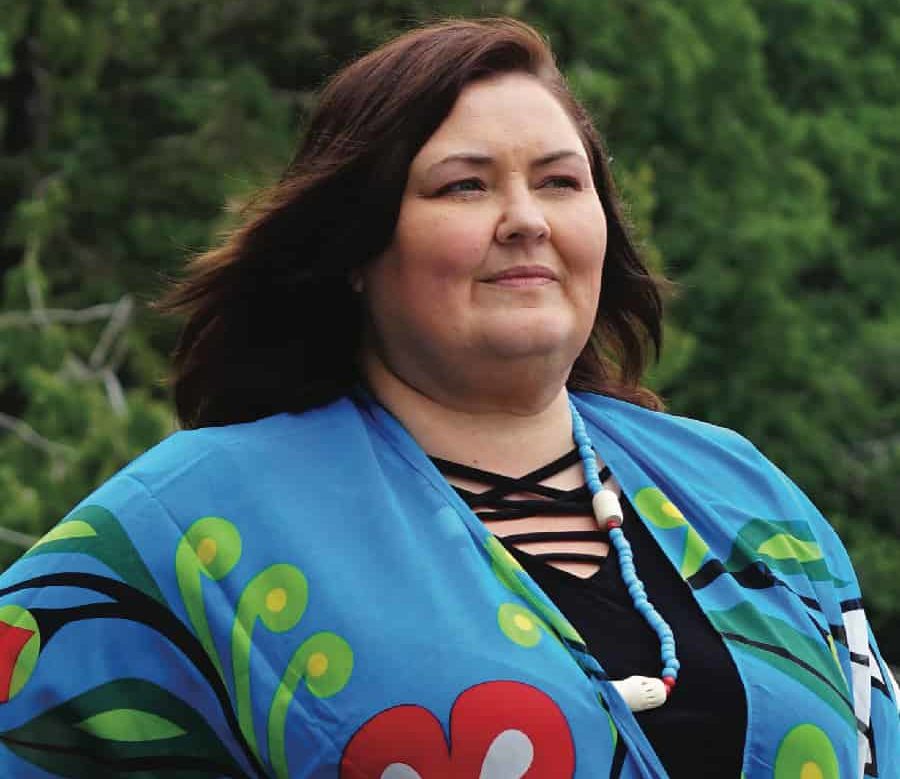
The 2019 Professional of the Year Award was presented to Wendy F. Smythe, Ph.D. (K’ah Skaahlauwaa), an Alaska Native Haida who recently completed an AAAS Science & Technology Policy Fellowship, hosted by the National Science Foundation.
Dr. Smythe works with Indigenous communities to couple STEM disciplines with traditional ecological knowledge in K-12 education. Through her work, she seeks to increase the number of Indigenous people represented in STEM disciplines, increase diversity and innovation, and teach the next generation of Indigenous leaders.
She has a dual Ph.D. in environmental science and engineering, and estuary and ocean systems from Oregon Health and Science University. Two years ago, she founded the Geoscience Foundation Education program in her tribal community of Hydaburg, Alaska, in collaboration with the tribe (Hydaburg Cooperative Association) and the Hydaburg City School District. This fall, she joined the University of Minnesota Duluth, American Indian studies department as a tenure track assistant professor. She is the first scientist to join the department, leading the new Master of Tribal Resource and Environmental Stewardship program.
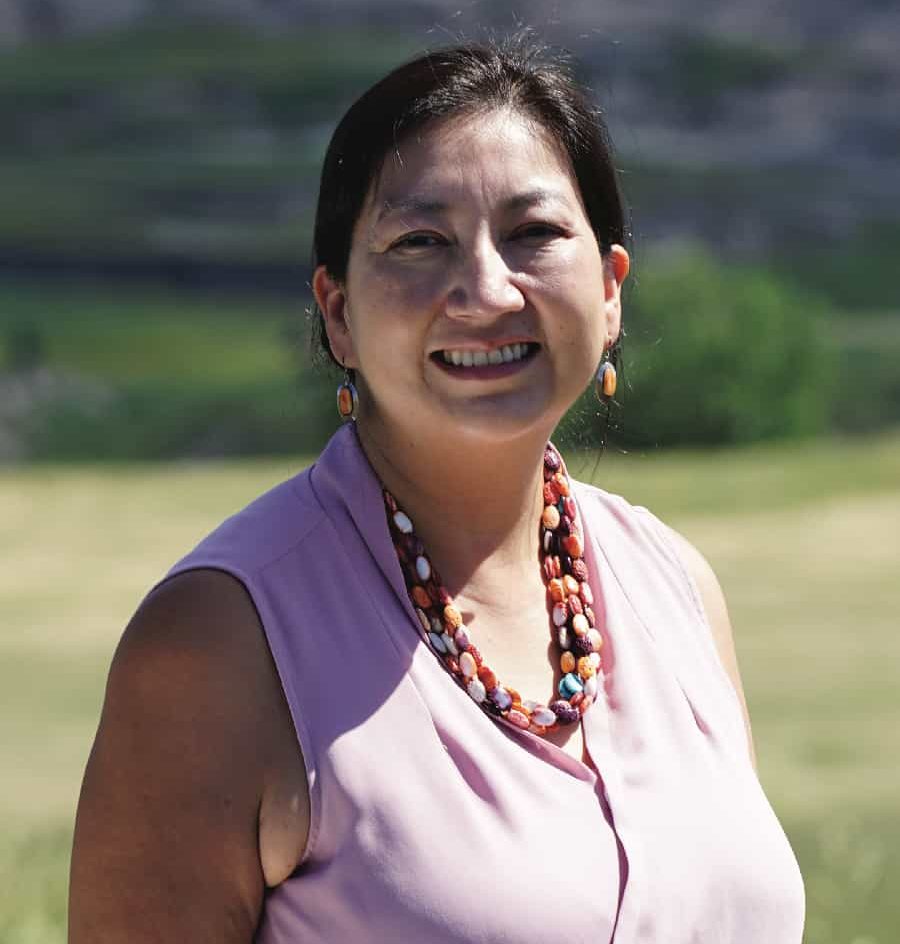
The Technical Excellence Award was presented to Otakuye Conroy-Ben, Ph.D. (Oglala Sioux), assistant professor of environmental engineering at Arizona State University. Her research spans urban agriculture, metabolic endocrine disruption, multidrug resistance during wastewater treatment, and wastewater-based epidemiology.
Dr. Conroy-Ben is committed to working with Indigenous communities in higher education, outreach, and research. Her research is unique and impactful, with direct implications for tribes. She pursued a chemistry major at the University of Notre Dame, where there were only a handful of American Indian students majoring in STEM. From the University of Arizona, she earned a master’s in chemistry, and master’s and Ph.D. degrees in chemical and environmental engineering, and, later, a postdoctoral in biochemistry and soils, water, and environmental science. An effective instructor and mentor, Dr. Conroy-Ben has partnered with Indigenous communities in education and outreach.

The Blazing Flame Award was presented to Sheila Lopez (Diné – Navajo) and Mexican American. She received a Bachelor of Science degree in electrical engineering from Northern Arizona University. Lopez joined AISES in 1992 and has served in various leadership roles at the collegiate and professional levels, including a term on the board of directors (2015-2017), and is a Sequoyah Fellow.
Her two main passions are increasing the number of Native professionals in STEM, and raising awareness of issues faced by lesbian, gay, bisexual, transgender, and queer (LGBTQ) individuals. While working in engineering more than two decades, Lopez has helped recruit many people of color for technical careers at HP, where she began her career, and Intel, where she is a diversity program manager. Her programs contributed to Intel’s 2018 announcement of reaching full representation two years ahead of the scheduled goal.
Lopez founded the only Native American chapter of PFLAG, the nation’s largest family and ally organization supporting LGBTQ individuals, their families, and friends.
Author
-

SWE Blog provides up-to-date information and news about the Society and how our members are making a difference every day. You’ll find stories about SWE members, engineering, technology, and other STEM-related topics.


